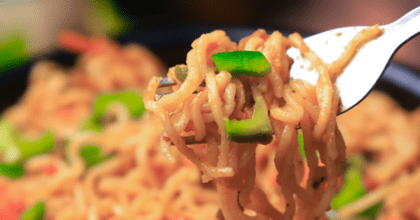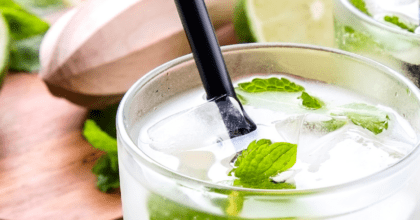Nearly 4 in 10 US consumers closely or occasionally follow a sober curious lifestyle
- 39% of consumers say they follow/would follow a sober curious lifestyle for physical health reasons and 29% for mental health reasons
- 71% of sober curious consumers worry about the long-term health effects of alcohol consumption
- 73% of consumers believe alcohol substitute drinks should be cheaper than alcoholic drinks
The ‘sober curious’ lifestyle is inching into the mainstream as, according to new Mintel research, nearly four in 10 US consumers closely (22%) or occasionally (16%) follow a sober curious lifestyle. With 41% of Americas agreeing that no-alcohol months are a fun challenge, and 52% agreeing restaurants should offer more mocktails, the sober curious lifestyle is gaining momentum. The top reasons Americans say they follow/would follow a sober curious lifestyle are for physical health (39%), to save money (35%), to make alcohol an occasional indulgence (35%), and for mental health (29%).
Caleb Bryant, Associate Director of Food & Drink, Mintel Reports US, said:
“Expansion of the sober curious lifestyle, and growth of alcohol alternative (AA) beverages, signals a more mindful approach in consumers’ relationship with alcohol. The sober curious lifestyle often provides consumers with a sense of community and support. In-person groups, online communities, and apps (including sober curious dating apps) exist to help consumers interested in recovery, teetotalers, and the sober-curious connect and support each other.
“Our data shows that most sober curious consumers are primarily interested in turning alcohol into an occasional indulgence, suggesting future opportunities and challenges for both the AA and alcoholic beverage categories. While some alcohol brands may face sales declines stemming from the sober curious movement, premium alcoholic beverage options may see sales increase as sober curious consumers treat themselves to high-quality drinks that allow them to achieve their health and wellness goals. AA brands must, therefore, recognize that their products may act as occasional substitutes rather than beverages consumers drink every day and focus on touting the health, wellness, and productivity benefits of reducing alcohol consumption to motivate consumers to follow a sober curious lifestyle.”
Health concerns dissuade alcohol consumption
Interest in health and wellness is a primary driver of the sober curious movement and the strong growth of AA beverages, as 71% of sober curious consumers worry about the long-term health effects of alcohol consumption, compared to 57% of total consumers.
Around three-quarters of Gen Z (71%) and Millennials (73%) closely/occasionally follow or are interested in trying a sober curious lifestyle as it aligns with priorities, like health and wellness. A third (35%) of consumers aged 22-34 say they follow/would follow a sober curious lifestyle for mental health reasons and among the 22-44-year-olds who are drinking less alcohol, 32% say they are drinking less to improve/maintain their mental health. As Millennials age and are adopting new personal responsibilities, seven in 10 (69%) say they worry about the long-term health effects of drinking.
While nearly a third (32%) of Millennials say they closely follow the sober curious lifestyle, actual adherence may vary from person to person and reflect their own definition of ‘sober curious.’ Mintel data reveals that younger consumers also hold fairly positive views toward alcohol as 51% of Millennials say that giving up alcohol entirely is too difficult and 69% agree that alcohol enhances special occasions.
“Younger consumers are drinking less alcohol to improve their mental health and increase their productivity, indicating opportunities for stress-reducing and sleep-promoting AAs. Additionally, brands can market AAs as beverages young consumers can enjoy at night without a hangover or grogginess in the morning, increasing productivity and empowering consumers to accomplish their goals,” continued Bryant.
Mitigation rather than elimination
Finally, almost half (47%) of Americans say giving up alcohol entirely is too difficult. Sober curious consumers still harbor relatively positive views toward alcohol despite concerns surrounding the healthfulness of alcohol consumption. One in five (18%) of consumer report drinking less alcohol compared to one year ago and 35% of consumers who follow/would follow a sober curious lifestyle want to make alcohol an occasional indulgence. With the majority of sober curious consumers reducing/limiting alcohol consumption and not eliminating it, non-alcoholic (NA) beverage brands must focus on key selling points to earn consumers’ dollars: 67% of sober curious consumers agree that NA drinks should taste indistinguishable from the real thing.
“Sober curiosity is trending as consumers prioritize their health and wellbeing, prompting many to seek premium, unique, healthful, and functional alcohol alternatives. Products ranging from NA beer to mood-boosting adaptogen tonics to traditional CSDs can leverage new opportunities as consumers strive to reduce their alcohol consumption. And while consumers are rethinking their alcohol consumption, alcoholic beverages remain a mainstay indulgence for sober curious consumers.
“Even as the AA category grows, premium alcoholic beverages will perform strongly as consumers drink less but increasingly opt for higher quality options. As such, alcohol companies can maintain their relevancy through the development of premium, BFY alcoholic drinks,” concluded Bryant.
Additional research on US consumer attitudes toward alcohol alternatives and interviews with the analyst are available upon request from the Mintel Press Office. For those interested in purchasing the full report, please visit the Mintel Store.

Caleb Bryant is Associate Director, Food & Drink at Mintel, specializing in changing consumer attitudes, industry news and beverage trends.
-
US Alcohol Alternatives Market Report 2022Check out changes in consumers’ alcohol consumption and the reasons behind those changes....View our reports store
-
Mintel LeapMintel Leap is a revolutionary new AI-powered platform that will transform your research process....Book a demo






































